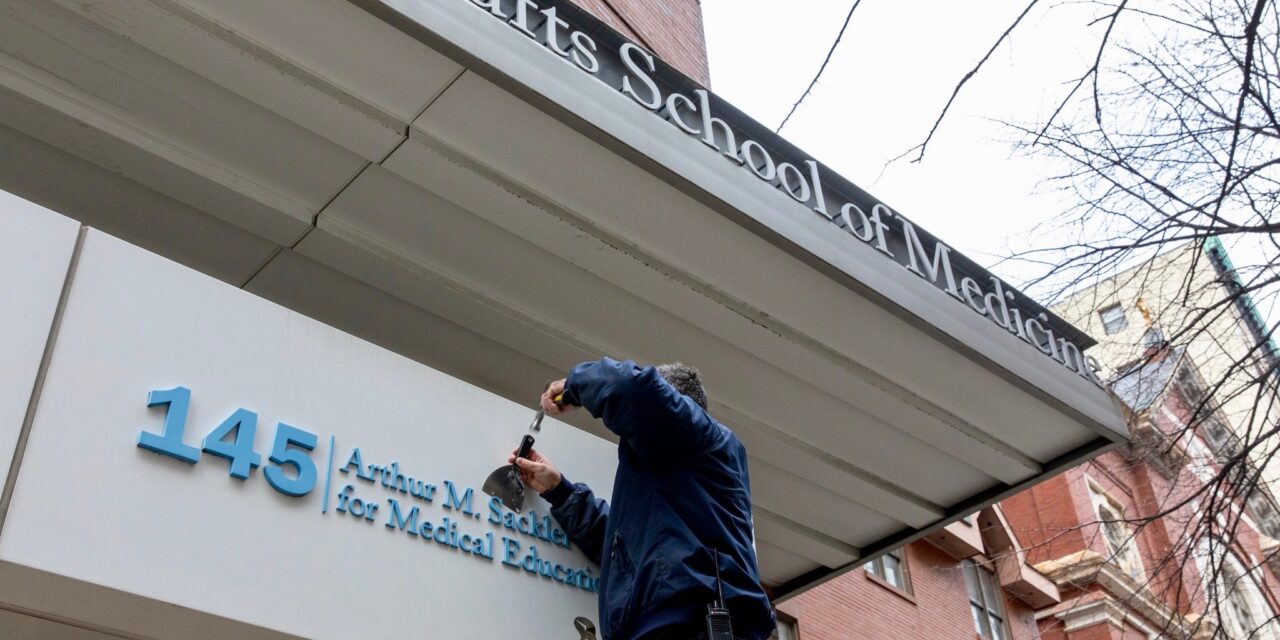“Tufts Removes Sackler Name Over Opioids: ‘Our Students Find it Objectionable'” was the NY Times headline December 6. (The university will not be returning the $15 million the family has donated to Tufts.) The story by Eileen Barry was accompanied by a photo of a groundskeeper removing the lettering from the front of a building formerly known as the Arthur M. Sackler Center for Medical Education. (Credit Cody O’Loughlin.) Barry reports, accurately:
“The Sacklers’ company, Purdue Pharma, the producer of the prescription painkiller OxyContin, has been cast by prosecutors and plaintiffs as responsible for an addiction epidemic that has led to the deaths of hundreds of thousands of Americans over the past two decades.”
But the implication that the Sacklers’ Purdue Pharma has been solely “responsible for an addiction epidemic” is not accurate. Media focus on the Sacklers has obscured he fact that Johnson & Johnson profited —and continues to profit— much more than Purdue because its Janssen subsidiary grew the thebaine-dominant poppies from which the opioids that drove the epidemic were manufactured. Barry notes that
“A series of major cultural institutions, including the Tate, Britain’s National Portrait Gallery and the Solomon R. Guggenheim Museum in New York, announced this year that they would no longer take donations from the Sacklers.”
But no institution, as far as I know, has badmouthed Johnson and Johnson or refused the largesse of the Robert Wood Johnson Foundation, the non-profit through which J&J funds ventures and institutions it deems worthy (and in its corporate interests). Although it has been sued and will have to make restitution to plaintiffs (a very small fraction of their opioid profits), J&J has been spared the PR disaster suffered by Purdue.
The dean of Tufts med school made a noble effort to distance himself from the insult to major donors:
“Dr. Harris A. Berman, the dean of the Tufts University School of Medicine, called the decision “a wrenching one” for the university, but said that students had sent a clear message.
“’Our students find it objectionable to walk into a building that says Sackler on it when they come in here to get their medical education,’ he said.”
The widow of Arthur M. Sackler issued a poignant statement from which we infer that there is some discord within the family:
“The man has been dead for 32 years. He did not profit from it, and none of his philanthropic gifts were in any way connected to opioids or to deceptive medical marketing —which he likewise had nothing to do with. It deeply saddens me to witness Arthur being blamed for actions taken by his brothers and other OxySacklers.”
The tag of the Times story provides the basis for a novel, describing the three Sackler brothers as “sons of a Brooklyn greengrocer, all of whom became psychiatrists.”





